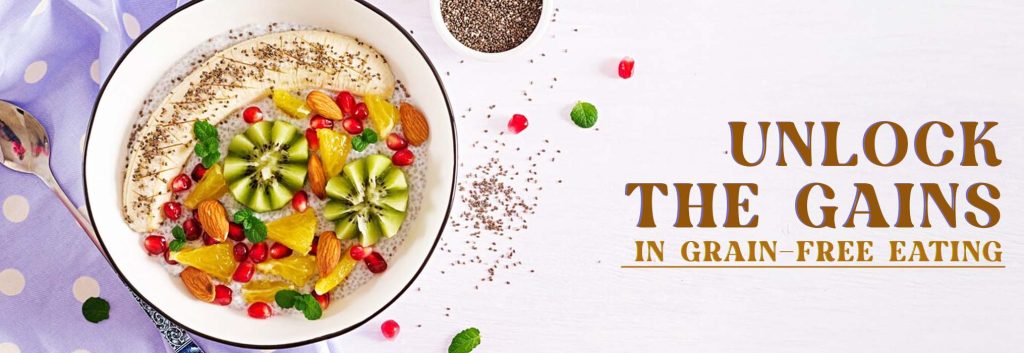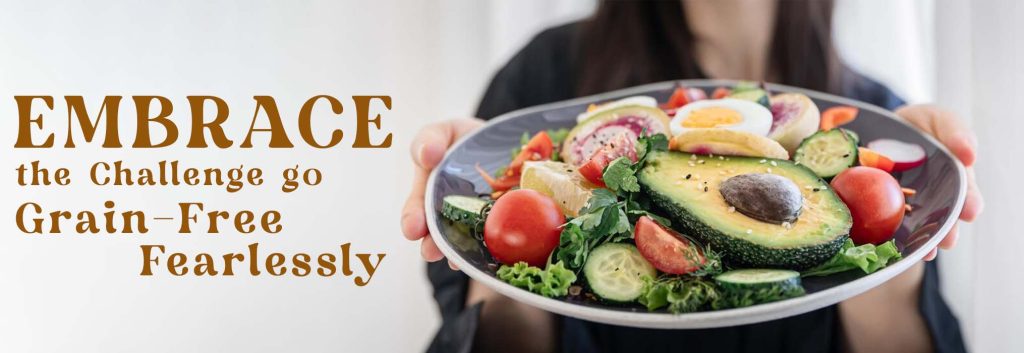In the world of health and wellness, so many trends come and go but there is one that has captured attention in recent times is “the trend of going grain-free in terms of health and wellness”. The idea behind this dietary choice is to eliminate grains like wheat, rice, and oats from your meals. Advocates claim that it can lead to improved digestion, weight loss, and better overall health.
However, like any dietary trend, it's essential to approach it with a critical mind and a solid understanding of the science behind it. In this blog post, we'll dive into the question: Is going grain-free genuinely better for your health, or is going grain-free a better choice for your well-being? Let's break it down in simple terms.
Understanding Grains and Their Role
Before knowing anything we need to understand grains and their role in terms of health. Grains have been a part of human diets for ages. They include foods like bread, pasta, and cereal. Grains are packed with carbohydrates, which are like fuel for your body. They give you the energy to move, play, and do all the things you love. Grains also provide fiber, which helps keep your tummy happy and your digestion smooth.
Grain-free eating is on the rise

Now, let's talk about the grain-free trend. Imagine saying goodbye to bread and pasta – sounds tough, right? Well, some folks believe that cutting out grains can bring lots of benefits. They say it can help with weight loss, make your tummy feel better, and even clear up your skin.
In this blog, we also talk about the potential benefits and Potential risks of a grain-free diet:
Potential Benefits of Grain-free diet

- Reduced Digestive Discomfort: One of the main reasons people consider going grain-free is to address digestive discomfort. Some individuals find that certain grains can cause bloating, gas, or an upset stomach. This might be because of a sensitivity to gluten or other compounds in grains. By eliminating grains, these people hope to enjoy meals without the discomfort that sometimes comes with them.
- Improved Blood Sugar Control: Another potential benefit of a grain-free diet is improved blood sugar control. Grains are rich in carbohydrates, which your body breaks down into sugar for energy. However, some grains cause a rapid spike in blood sugar levels, followed by a crash that leaves you feeling tired and hungry. By cutting out these grains, people aim to stabilize their blood sugar levels and avoid those energy roller coasters.
- Weight Management: Weight management is a big concern for many people, and some have found success with a grain-free diet. Grains can be calorie-dense, and it's easy to overeat foods like pasta, bread, and cereals. By eliminating these grains, people often reduce their calorie intake and might experience weight loss as a result. However, it's important to remember that weight loss might also come from making healthier food choices overall.
- Potential Reduction in Inflammation: Inflammation is your body's natural response to injury or infection, but chronic inflammation has been linked to various health issues. Some people believe that cutting out grains can help reduce inflammation, particularly if they have conditions like arthritis or autoimmune disorders. Certain grains contain gluten, which can trigger inflammation in some individuals. By going grain-free, these individuals hope to alleviate their symptoms and feel better.
- Increased Awareness of Food Choices: Choosing a grain-free diet can lead to increased awareness of your food choices. When you eliminate grains, you might find yourself exploring new foods and cooking methods. This can be an opportunity to discover nutrient-rich alternatives like quinoa, sweet potatoes, and nuts. It encourages you to read labels and learn more about the ingredients in your food, which can contribute to making healthier choices overall.
Important Considerations

While these potential benefits sound promising, it's crucial to approach a grain-free diet with caution and awareness. Here are a few things to keep in mind:
- Nutrient Intake: Grains are often fortified with essential nutrients like B vitamins and iron. When you cut them out, you might need to find alternative sources for these nutrients. Make sure you're still getting a balanced diet with plenty of fruits, vegetables, lean proteins, and healthy fats.
- Fiber Intake: Grains are a significant source of dietary fiber, which supports healthy digestion and keeps you feeling full. Without grains, it's important to make sure you are getting enough fiber from other sources like fruits, vegetables, and legumes.
- Individual Variability: Just as some people benefit from a grain-free diet, others may not experience any improvements. Everyone's body is different, and what works for one person might not work for another. It's essential to listen to your body and consult a healthcare professional if you're considering a major dietary change.
- Sustainability: Can you see yourself sticking to a grain-free diet for the long term? Sustainability is key to any dietary change. If a grain-free diet feels restrictive and challenging to maintain, it might not be the best choice for you.
The Potential Risk of Taking Grain-free diet
- Nutrient Deficiency: Grains are rich sources of essential nutrients, and cutting them out entirely can lead to deficiencies in vitamins and minerals. Whole grains offer B vitamins, which are crucial for energy metabolism, as well as dietary fiber that supports gut health. Removing grains without careful planning can lead to an imbalanced diet.
- Limited Food Choices: Going grain-free can significantly limit your food options, making it challenging to achieve a well-rounded diet. This restriction might lead to boredom with your meals and potentially missing out on important nutrients from a variety of food sources.
- Social and Psychological Impact: Following a strict grain-free diet can sometimes be isolating in social settings where grains are prevalent. It may also contribute to an unhealthy relationship with food, promoting an “all-or-nothing” mentality that's not sustainable in the long run.
Conclusion
To improve your health, it's important to critically evaluate dietary trends before changing your eating habits. Grains may offer benefits to individuals with specific sensitivities, but eliminating all grains from the diet is not necessary for most people, and could lead to nutrient deficiencies. Choose a balanced diet that includes a variety of nutrient-rich foods, including whole grains, fruits, vegetables, lean proteins, and healthy fats, rather than eliminating entire food groups. With a well-rounded nutritional approach, you will improve your health and well-being overall.









No Comment! Be the first one.